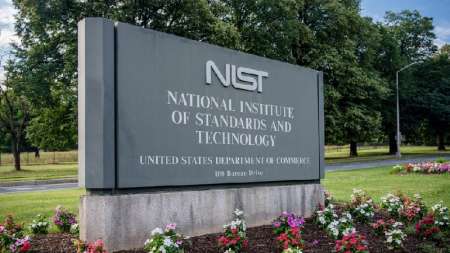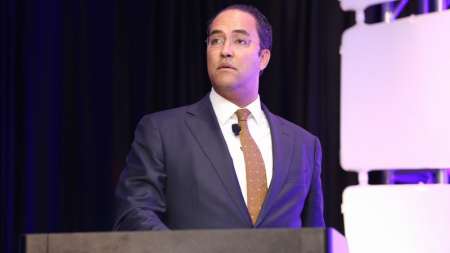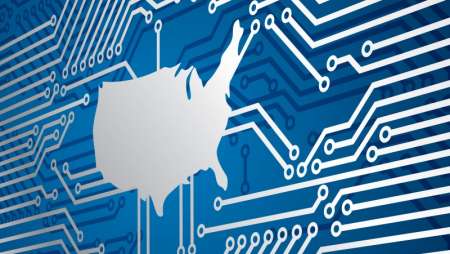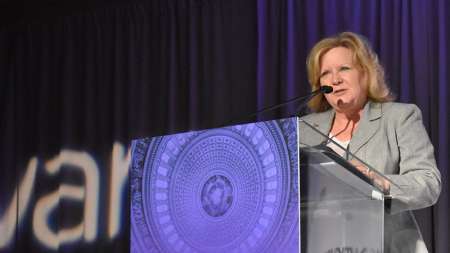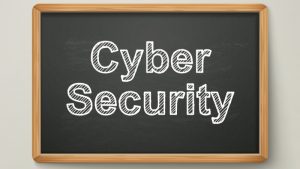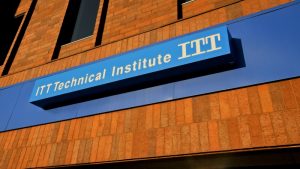In a press release from House Armed Services Committee Chairman Adam Smith, D-Wash., and Ranking Member Mac Thornberry, R-Texas, a bicameral agreement has been reached on the fiscal year 2021 National Defense Authorization Act (NDAA). […]
To help universities protect COVID-19 research, Reps. Andy Barr, R-Ky., and Frank Lucas, R-Okla., introduced legislation to give those universities and research institutions tools to protect from cyberattacks from foreign cyber actors. […]
The White House Office of Science and Technology Policy (OSTP) is advancing Federally-funded research on COVID-19 including research using supercomputers to run simulations. […]
Under the National Initiative for Cybersecurity Education (NICE), the National Institute of Standards and Technology (NIST) has provided links to free and low-cost online cybersecurity educational content. […]
The $2 trillion measure approved by the Senate last night to help stimulate the flagging U.S. economy and respond to the COVID-19 coronavirus pandemic will provide hefty increases to the budgets of numerous Federal agencies with major roles in pandemic response and mitigation. […]
Schools across the country are shuttering their doors amid the COVID-19 coronavirus crisis. While some have tentative plans to reopen later this spring, others – like all schools in the Commonwealth of Virginia – have closed for the remainder for the school year. […]
With more and more schools closing due to the COVID-19 pandemic, students across the country are switching to online learning. This change poses problems for low-income students who may lack internet connectivity in their homes. […]
Sen. Chris Van Hollen, D-Md., introduced legislation Feb. 28 that would increase the number of children who have internet access in their homes to close the “homework gap.” […]
The Defense Acquisition University (DAU), a training organization within the Department of Defense (DoD), wants to put some artificial intelligence (AI) into its learning environment to respond to real-time student needs and improve effectiveness and efficiency. […]
While figures vary across industry and government as to the size of the “phishing-prone” population in any organization, both sides agree that sustained internal employee training efforts are necessary to cut the success rate of spear-phishing exploits down to more manageable levels. […]
The United States must maintain its advantage in artificial intelligence and quantum computing over countries like China by placing the building blocks for a future workforce, according to Rep. Will Hurd, R-Texas. […]
Sen. Ron Johnson, R-Wis., argued in favor of the U.S. placing more emphasis on preparing the workforce for IT fields through certification programs, in remarks at the Department of Labor’s Federal IT Day on Thursday, May 16. […]
A collection of tech-sector trade groups including the Internet Association and Digital Europe is urging leaders from the world’s top 20 economic powers to focus on policies that encourage broadband deployment and adoption, and job skills training for the digital workforce when the G20’s Digital Economy Task Force meets next week in Argentina. […]
A former top White House cybersecurity policymaker and IT systems manager at the Department of Education said today at the FCW Cybersecurity Summit that Federal agencies should expect to become targets of sophisticated cyber attacks and should count on assistance from other entities including their cloud service providers to meet those assaults. […]
To attract girls and women to computer science and retain their interest in the field, Girls Who Code, a nonprofit organization dedicated to closing the gender gap in technology, said this week it is advocating for a policy agenda that includes expanded computer science classes, increased exposure to women and minorities in tech, and more professional development funding. […]
Welcome to MeriTalk News Briefs, where we bring you all the day’s action that didn’t quite make the headlines. No need to shout about ‘em, but we do feel that they merit talk. […]
IT modernization in the Federal government will require collaboration, effective policies, and a focus on the true end-goal: improving the government experience for citizens, said agency CIOs and industry leaders at a May 23 FedInsider webinar on IT modernization. […]
The government needs to help provide educational resources to address the shortage of qualified workers to fill U.S. cybersecurity positions, according to witnesses at a House Science, Space, and Technology committee hearing. […]
The Department of Homeland Security Science and Technology Directorate announced that it awarded $527,112 to Brigham Young University for a Web authentication middleware tool that will improve online security. […]
Three American universities are among the top 25 colleges that have the best coders in the world, according to a recent list created by HackerRank. […]
Many of the incoming freshmen starting at the University of Wisconsin-Green Bay in the fall of 2017 will have found out they were admitted to the school through Snapchat. […]
More than half of current university data analytics programs have been formed in the last six years, according to a recent report from software maker Tableau. […]
The Department of Education has plans to build a Federal database of student information, which has sparked protest from privacy groups. […]
The Center for Democracy & Technology, along with the law firm BakerHostetler, developed a state-by-state compendium of privacy laws relating to the collection, use, and sharing of student data. Here’s a look at the South. […]
The Center for Democracy & Technology, along with the law firm BakerHostetler, developed a state-by-state compendium of privacy laws relating to the collection, use, and sharing of student data. Here’s a look at states in the Northeast. […]
Is the digital divide growing or shrinking in the United States? A new Pew Research Center report found that the digital divide, and digital readiness, is closely tied to an individual’s socioeconomic status, their race and ethnicity, and their level of access to home broadband and smartphones. […]
Technavio announced the top 10 global visual analytics vendors for the U.S. education market through 2020. Educational institutions are increasing their use of dashboards and visualizations within applications and business process management systems as part of their technology strategy. […]
Governments need to invest in training and education to close the gap between open positions and available employees in the IT workforce, according to experts who testified in front of the House Oversight Committee. […]
The National Institute of Standards and Technology announced that it has awarded grants totaling nearly $1 million to five projects that will promote cybersecurity training and education in order to address the need for a larger cybersecurity workforce. […]
The U.S. Department of Education in August delivered a death blow for ITT Technical Institute by banning the for-profit college from accepting new students who depend on Federal student aid, which was the source of most of ITT’s revenue. On Tuesday, ITT Educational Services, the company that operates ITT Technical Institutes, said it was permanently closing all of its campuses nationwide. […]




